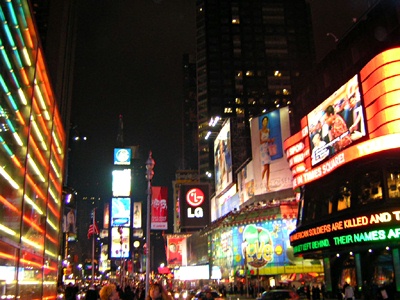All Nonfiction
- Bullying
- Books
- Academic
- Author Interviews
- Celebrity interviews
- College Articles
- College Essays
- Educator of the Year
- Heroes
- Interviews
- Memoir
- Personal Experience
- Sports
- Travel & Culture
All Opinions
- Bullying
- Current Events / Politics
- Discrimination
- Drugs / Alcohol / Smoking
- Entertainment / Celebrities
- Environment
- Love / Relationships
- Movies / Music / TV
- Pop Culture / Trends
- School / College
- Social Issues / Civics
- Spirituality / Religion
- Sports / Hobbies
All Hot Topics
- Bullying
- Community Service
- Environment
- Health
- Letters to the Editor
- Pride & Prejudice
- What Matters
- Back
Summer Guide
- Program Links
- Program Reviews
- Back
College Guide
- College Links
- College Reviews
- College Essays
- College Articles
- Back
Stuff: The intersection of Our Evolutionary Biology and Family Values
Being a Korean-American who has lived in the United States for only three years affords me a unique viewpoint for observing the Black Friday mania juxtaposed with a major national holiday. Because I did not grow up celebrating with turkey, cranberries and squabbles among relatives at the crowded dinner table, I do not feel that the mass consumerism and midnight sales corrode the country’s family values. Black Friday did not initiate materialism; rather, the event appeals to us because we are hardwired to covet items that are considered scarce and valuable. Thus, flash sales, in which long lines of people camp out to snag the latest smartphone, ignite our competitive natures and drive us to shop even for things we do not need. Whether they admit it or not, many shoppers love the hysteria of coupon-fueled mosh pits at retail stores. This is a phenomenon all too familiar to ex-J.C. Penney CEO Ron Johnson. When he did a massive overhaul of the retail giant’s image and focused on “fair and square” pricing as opposed to sporadic, unpredictable deals, he alienated his target demographic and showed how little he understood about the American consumer. People are drawn to the lure of the hunt, making shopping a game. Thus, Black Friday didn’t ruin Thanksgiving; our evolutionary biology did.
But yes, as a result of this obsessive, innate need to acquire, many people do have too much “stuff.” The Law of Diminishing Returns teaches us that the more we accumulate, the less joy we derive from each new possession, so we in turn must buy more to get the same satisfaction. Does that mean, when Thanksgiving rolls around, that we cannot be thankful for everything we have because we simply own too much? I believe the answer is no: because shopping is more of a competitive sport, we derive our happiness not from the Black Friday spoils, but from intangible possessions such as family and friends. I’ve witnessed among classmates at school that having the latest technological device or the trendiest clothes or newest designer handbag brings only temporary pleasure, as items get outdated seemingly overnight. The wanting never ends, but it is sometimes even better than the having, so we need to find meaning in places other than our closets.
In general, there is no uniform way of celebrating family: for some, it means sitting down to a sumptuous, celebratory feast, and to others, it means camping out by department store doors to get the best deal on a gift for someone you love. In my experience, it is often both.

Similar Articles
JOIN THE DISCUSSION
This article has 0 comments.
